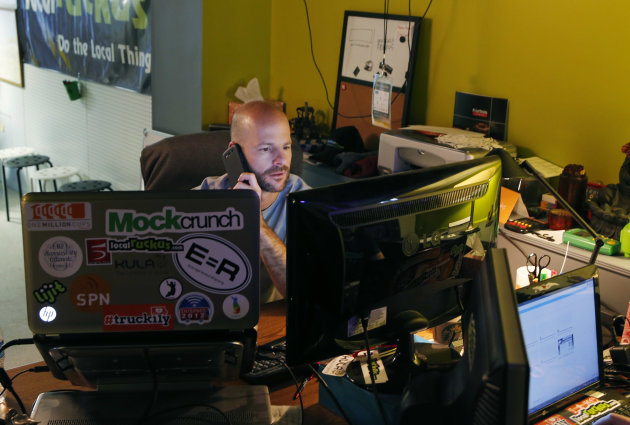Did your kids moan
that winter break was way too short as you got them ready for the first
day back in school? They might get their wish of more holiday time off
under proposals catching on around the country to lengthen the school
year.
But there's a catch: a much shorter summer vacation.
Education Secretary Arne Duncan, a chief proponent of the longer school year, says American students have fallen behind the world academically.
"Whether educators have more time
to enrich instruction or students have more time to learn how to play
an instrument and write computer code, adding meaningful in-school hours
is a critical investment that better prepares children to be successful
in the 21st century," he said in December when five states announced
they would add at least 300 hours to the academic calendar in some
schools beginning this year.
The three-year pilot project will
affect about 20,000 students in 40 schools in Colorado, Connecticut,
Massachusetts, New York and Tennessee.
Proponents argue that too much knowledge is lost while American kids wile away the summer months apart from their lessons. The National Summer Learning Association
cites decades of research that shows students' test scores are higher
in the same subjects at the beginning of the summer than at the end.
"The research is very clear about that," said Charles Ballinger, executive director emeritus of the National Association for Year-Round School
in San Diego. "The only ones who don't lose are the upper 10 to 15
percent of the student body. Those tend to be gifted, college-bound,
they're natural learners who will learn wherever they are."
Supporters also say a longer school year would give poor children more access to school-provided healthy meals.
Yet the movement has plenty of detractors — so many that Ballinger sometimes feels like the Grinch trying to steal Christmas.
"I had a parent at one meeting say, 'I want my child to lie on his
back in the grass watching the clouds in the sky during the day and the
moon and stars at night,'" Ballinger recalled. "I thought, 'Oh, my. Most
kids do that for two, three, maybe four days, then say, 'What's
next?''"
But opponents aren't simply dreamy romantics.
Besides the outdoor opportunities for pent up youngsters, they say
families already are beholden to the school calendar for three seasons
out of four. Summer breaks, they say, are needed to provide an academic
respite for students' overwrought minds, and to provide time with family
and the flexibility to travel and study favorite subjects in more
depth. They note that advocates of year-round school cannot point to any
evidence that it brings appreciable academic benefits.
"I do believe that if children have not mastered a subject that,
within a week, personally, I see a slide in my own child," said Tina
Bruno, executive director of the Coalition for a Traditional School
Calendar. "That's where the idea of parental involvement and parental
responsibility in education comes in, because our children cannot and
should not be in school seven days a week, 365 days a year."
Bruno is part of a "Save Our Summers" alliance of parents,
grandparents, educational professionals and some summer-time recreation
providers fighting year-round school. Local chapters carry names such as
Georgians Need Summers, Texans for a Traditional School Year and Save
Alabama Summers.
Camps, hotel operators and other summer-specific industries raise red flags about the potential economic effect.
The debate has divided parents and educators.
School days shorter than work days and summer breaks that extend to
as many as 12 weeks in some areas run up against increasing political
pressure from working households — 30 percent of which are headed by
women. These families must fill the gaps with afterschool programs, day
care, babysitters and camps.
"Particularly where there are single parents or where both parents
are working, they prefer to provide care for three weeks at a time
rather than three months at a time," Ballinger said.
The National Center on Time & Learning has estimated that about 1,000 districts have adopted longer school days or years.
Some places that have tried the
year-round calendar, including Salt Lake City, Las Vegas and parts of
California, have returned to the traditional approach. Strapped budgets
and parental dissatisfaction were among reasons.
School years are extended based on three basic models:
—stretching the traditional 180 days of school across the whole
calendar year by lengthening spring and winter breaks and shortening the
one in the summer.
—adding 20 to 30 actual days of instruction to the 180-day calendar.
—dividing students and staff into groups, typically four, and
rotating three through at a time, with one on vacation, throughout the
calendar year.
At the heart of the debate is nothing less than the ability of America's workforce to compete globally.
The U.S. remains in the top dozen or so countries in all tested
subjects. But even where U.S. student scores have improved, many other
nations have improved much faster, leaving American students far behind
peers in Asia and Europe.
Still, data are far from clear that more hours behind a desk can help.
A Center for Public Education review found that students in India and
China — countries Duncan has pointed to as giving children more
classroom time than the U.S. — don't actually spend more time in school
than American kids, when disparate data are converted to
apples-to-apples comparisons.
The center, an initiative of the National School Boards Association,
found 42 U.S. states require more than 800 instructional hours a year
for their youngest students, and that's more than India does.
Opponents of extended school point out that states such as Minnesota
and Massachusetts steadily shine on standardized achievement tests while
preserving their summer break with a post-Labor Day school start.
"It makes sense that more time is going to equate to more learning,
but then you have to equate that to more professional development for
teachers — will that get more bang for the buck?" said Patte Barth, the
center's director. "I look at it, and teachers and instruction are still
the most important factor more so than time."
The center's study also found that some nations that outperform the U.S. academically, such as Finland, require less school.
Many schools are experimenting
with the less controversial, less costly interim step of lengthening the
school day instead of adding days to the school year.
Chicago's public schools extended
the school day from 5 hours and 45 minutes to 7 hours last year after a
heated offensive by unionized teachers and some parents. Mayor Rahm
Emanuel, former chief of staff to Duncan's boss, President Barack Obama,
initially pushed an even longer school day — a major sticking point in this year's seven-day teachers' strike. He and other proponents argued that having the shortest school day
among the nation's 50 largest districts and one of the shortest school
years had put Chicago's children at a competitive disadvantage.
Wendy Katten, executive director
of Raise Your Hand for Illinois Public Education, said opponents held
back a push for a 7.5-hour school day, and got an extra staff person assigned to each school to handle the additional hour and 15 minutes of school time.
In San Diego, year-round school has been a reality since the 1970s.
District spokesman Jack Brandais
said the concept was initially intended to relieve crowding, not improve
performance test scores. The student body and staff were divided into
four groups, with three attending school at any given time.
Through decades of fine-tuning, Brandais said the district now runs both traditional and year-round tracks simultaneously.
A 2007 study by Ohio State
University sociologist Paul von Hippel found virtually no difference in
the academic gains of students who followed a traditional nine-month
school calendar and those educated the same number of days spread across
the entire year.
Amid budget cuts and teacher
layoffs, San Diego has cut five instructional days from both year-round
and traditional schedules since last year.












 Two North Carolina deaf men were in the middle of an altercation when a third man, Jarell Neal, approached and stabbed one of them, mistaking his sign language for gang signs, reports
Two North Carolina deaf men were in the middle of an altercation when a third man, Jarell Neal, approached and stabbed one of them, mistaking his sign language for gang signs, reports 
 It’s hardly breaking news that young adults are living at home longer.
It’s hardly breaking news that young adults are living at home longer. 




 Galaxy crash sparks large spiral
Galaxy crash sparks large spiral


